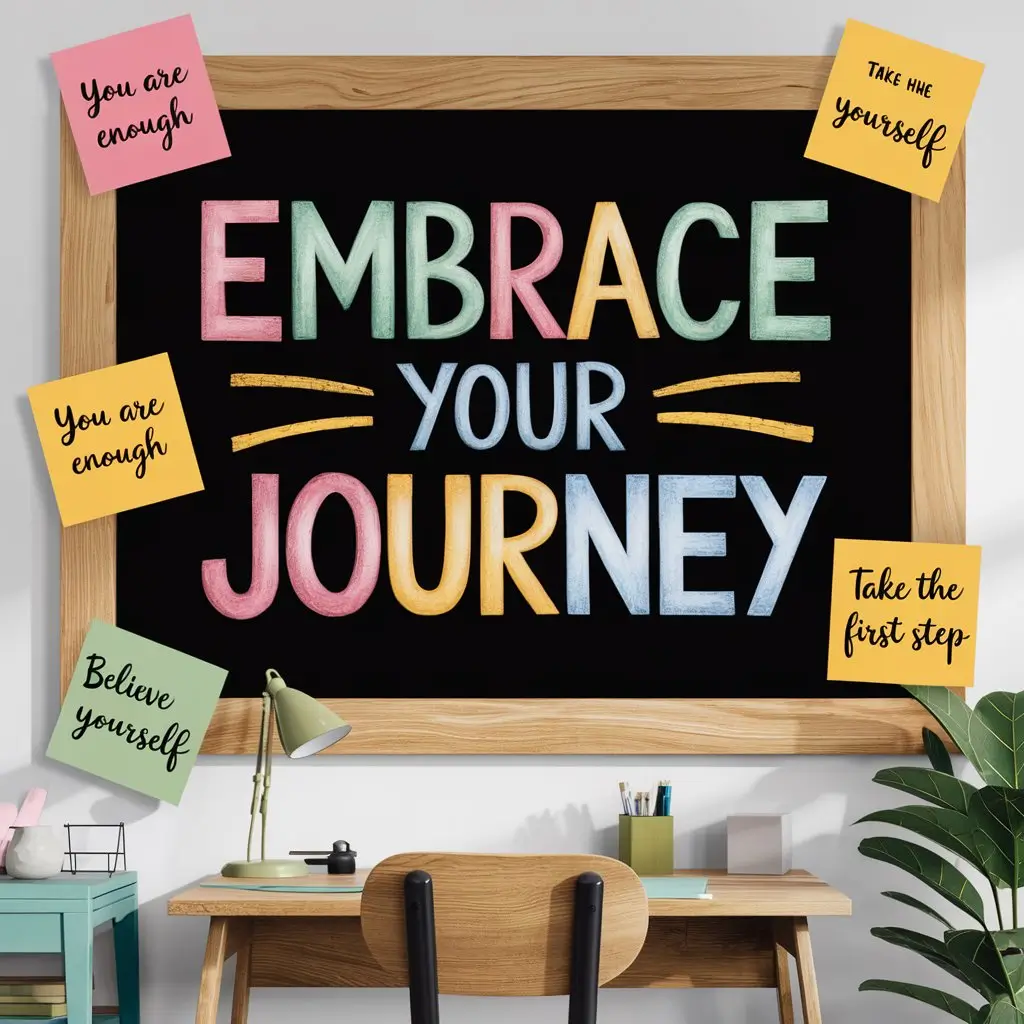Our personal growth depends heavily on developing our most essential relationship which exists between ourselves and others. Establishing a robust bond with oneself will enable you to accept yourself better which boosts your mental health and gives you strength to overcome adversity. This article presents step-by-step exercises which develop self-relationship strength for better authenticity and fulfillment in life.
Understanding Self-Relationship
A healthy relationship with yourself means recognizing your worth, understanding your needs, and treating yourself with kindness and respect. Signs of a strong self-relationship include self-compassion, confidence in decision-making, and an overall sense of well-being. Conversely, a weak self-relationship may manifest as negative self-talk, low self-esteem, and difficulty setting boundaries, which can hinder personal growth.
Benefits of Strengthening Your Relationship with Yourself
Strengthening your relationship with yourself is not just a personal endeavor; it has profound implications for your overall well-being and quality of life. Here are some key benefits that come with nurturing this vital relationship:
Improved Mental Health
A strong self-relationship is closely linked to mental health. When you cultivate self-acceptance and self-compassion, you create a buffer against anxiety and depression. By understanding and acknowledging your feelings, you can better manage stress and emotional turmoil.Your self-awareness makes it possible to meet challenges with resilience instead of taking impulsive actions. Research shows that individuals with a positive self-relationship tend to experience lower levels of psychological distress, leading to a more stable and peaceful mind.
Increased Self-Esteem and Confidence
When you invest time in understanding and caring for yourself, your self-esteem naturally improves. A healthy self-relationship enables you to recognize your strengths and achievements, fostering a sense of pride in who you are. This increased self-esteem translates into greater confidence in various aspects of life, from personal relationships to professional endeavors. As you become more assured in your abilities and value, you are more likely to pursue opportunities and take on challenges that align with your goals.
Better Decision-Making Skills
A strong relationship with yourself enhances your ability to make decisions that reflect your true values and desires. When you understand your needs and priorities, you can approach choices with clarity and confidence. This self-awareness allows you to weigh options thoughtfully, leading to decisions that contribute positively to your life. Instead of being swayed by external pressures or fears, you learn to trust your intuition and judgment, resulting in a more authentic and fulfilling life path.
Enhanced Emotional Resilience
Building a solid self-relationship equips you with the emotional tools necessary to navigate life’s ups and downs. When you accept and validate your feelings, you cultivate resilience in the face of challenges. Acknowledging that it’s okay to feel sad, frustrated, or overwhelmed allows you to process these emotions constructively rather than suppressing them. This emotional resilience not only helps you cope with adversity but also encourages a growth mindset, where you view setbacks as opportunities for learning and development.
Healthier Relationships with Others
As you strengthen your relationship with yourself, you naturally improve your interactions with others. When you treat yourself with kindness and respect, you are better equipped to extend that same compassion to those around you. Healthy self-relationships foster empathy, allowing you to understand and support others without losing sight of your own needs. This balance leads to more meaningful connections and reduces the likelihood of codependency or unhealthy dynamics in your relationships.
Greater Life Satisfaction
Ultimately, a strong relationship with yourself contributes to overall life satisfaction. When you are in tune with your values, goals, and emotions, you are more likely to pursue activities and experiences that bring you joy and fulfillment. This alignment between your inner self and your external actions fosters a sense of purpose and direction, enhancing your overall quality of life. As you cultivate self-love and acceptance, you open the door to a more enriching and gratifying existence.
Increased Motivation and Productivity
A healthy self-relationship often leads to increased motivation and productivity. When you appreciate and value yourself, you are more likely to set ambitious goals and take actionable steps toward achieving them. This intrinsic motivation stems from a desire to honor your potential and contribute positively to the world around you. As you see progress in your endeavors, your confidence grows, creating a positive feedback loop that fuels further ambition and creativity.
Exercises to Strengthen Your Relationship with Yourself
Self-Reflection Journaling
Journaling is a powerful tool for self-reflection. Daily assignment of time enables you to share your emotions and thoughts through writing. Consider prompts like:
- What am I grateful for today?
- I confronted several obstacles and describe how I managed them.
- How did I show kindness to myself today?
Regular journaling can help you gain insights into your emotions and foster a deeper understanding of yourself.

Mindfulness and Meditation
Mindfulness practices, such as meditation, cultivate self-awareness and present-moment focus. Begin with simple techniques, such as:
- Deep breathing for a few minutes.
- Guided meditation sessions available through apps or online resources.
These practices can help you become more attuned to your thoughts and feelings, promoting a healthier self-relationship.
Positive Affirmations
Positive affirmations are statements that reinforce your self-worth. Create personalized affirmations like:
- “I am enough.”
- “I deserve happiness and success.”
- “I embrace my uniqueness.”
Make these positive affirmations a regular part of your schedule by saying them at sunrise and when self-doubt appears to modify your perspective.
Setting Boundaries
Establishing boundaries is essential for self-respect. Identify areas in your life where you need to set limits, such as work, relationships, or personal time. Communicate these boundaries clearly and practice saying “no” when necessary. Healthy boundaries enhance your self-relationship by promoting emotional well-being.
Engaging in Self-Care Activities
You must make your physical alongside emotional and mental welfare a high priority to practice self-care. Explore various self-care practices, such as:
- Regular exercise
- Enjoying hobbies
- Taking relaxing baths
Incorporating self-care into your routine reinforces the message that you are worthy of love and care.
Exploring Creative Outlets
Inventiveness permits self-expression and investigation of your inward self. Lock in in exercises like portraying, composing, or playing music. These inventive outlets not as it were give delight but also assist you in connecting more profoundly with your feelings and contemplations.
Overcoming Challenges
While the path to a stronger self-relationship is rewarding, it often comes with its own set of challenges. RPersonality development needs recognition and proper handling of these challenges. Here are some common challenges you might face, along with strategies to overcome them:
Negative Self-Talk
Self-doubting thinking weakens your self-esteem while also blocking your personal advancement. You might find yourself engaging in harsh criticism or focusing on perceived failures. To combat this:
- Pay attention to the way you talk to yourself because it starts with self-awareness of negative thoughts. Pay attention to the specific thoughts that arise and the situations that trigger them.
- Reframe Your Thoughts: Challenge negative statements by reframing them into more positive, constructive ones. Learning growth accompanies each of my experiences so I can transform negatives into positives.
- Practice Self-Compassion: Treat yourself with kindness as you would a friend. Acknowledge that everyone makes mistakes and that imperfection is part of being human.
Fear of Vulnerability
Many people struggle with the fear of being vulnerable, which can prevent them from fully engaging in self-exploration and honest self-reflection. To overcome this fear:
- Understand Vulnerability: Recognize that vulnerability is not a weakness but a strength that allows for deeper connections with yourself and others.
- Start Small: Begin by sharing small aspects of yourself with trusted friends or family. As you build confidence, gradually open up about more significant issues.
- Embrace Imperfection: Accept that being vulnerable means exposing parts of yourself that may not be perfect. This acceptance can relieve pressure and encourage authenticity.

Lack of Time
In our busy lives, finding time for self-care and self-reflection can feel overwhelming. To prioritize your relationship with yourself despite a hectic schedule:
- Schedule Self-Care: Treat self-care as a non-negotiable appointment. Piece out time in your calendar, particularly for exercises that feed your intellect and body.
- Incorporate Mindfulness into Daily Routines: Look for opportunities to practice mindfulness during everyday activities, such as eating, walking, or commuting. This can help you stay present without requiring additional time.
- Set Realistic Goals: Start with small, achievable goals for self-care. Even dedicating just 5-10 minutes a day can make a significant difference over time.
Comparisons to Others
Social media and societal expectations can lead to unhealthy comparisons with others, negatively impacting your self-esteem. To mitigate this challenge:
- Limit Social Media Exposure: Consider taking breaks from social media or curating your feeds to include content that inspires and uplifts you rather than triggering feelings of inadequacy.
- Remember all paths of growth remain different from one another. Concentrate on your personal growth and celebrate your achievements, no matter how small.
- Practice Gratitude: Regularly reflect on what you appreciate about your life and yourself. This practice can shift your focus from comparison to gratitude.
Resistance to Change
Change can be uncomfortable, and you might feel resistant to the new habits and practices needed to strengthen your self-relationship. To overcome this resistance:
- Acknowledge Your Feelings: Recognize that feeling uncomfortable is a natural part of the growth process. Allow yourself to feel these emotions without judgment.
- Set Incremental Goals: Rather than attempting to change everything at once, focus on small, incremental changes that you can gradually build upon. This approach makes the process feel more manageable.
- Develop a growth mindset which allows you to believe that determination and effort generate development in abilities and intelligence. Viewing challenges as opportunities for growth can help you embrace change.
Emotional Overwhelm
As you delve deeper into self-exploration, you may encounter intense emotions or memories that can feel overwhelming. To navigate this emotional terrain:
- Practice Grounding Techniques: Engage in grounding exercises, such as deep breathing, progressive muscle relaxation, or visualization, to help anchor yourself during overwhelming moments.
- Seek Professional Support: If you find it challenging to cope with intense emotions, consider seeking guidance from a therapist or counselor. They can provide tools and strategies to help you process your feelings safely.
- Create a Safe Space: Establish a comforting environment where you feel secure enough to explore your emotions. This might include creating a cozy corner in your home or spending time in nature.
Lack of Motivation
At times, you may feel unmotivated to engage in self-care or personal growth activities. To rekindle your motivation:
- Identify Your “Why”: Reflect on the reasons you want to strengthen your relationship with yourself. Understanding your motivations can reignite your passion for personal growth.
- Celebrate Progress: Acknowledge and celebrate even the smallest victories along the way. Pulling yourself onward requires acknowledging your accomplishments.
- Join Supportive Communities: Surround yourself with like-minded individuals who encourage and inspire you. Engaging in group activities or discussions can foster motivation and accountability.
Patience and Consistency
Developing a healthy self-relationship takes time and effort. You might feel discouraged if you don’t see immediate results. To cultivate patience and consistency:
- Set Realistic Expectations: Understand that personal growth is a journey, not a destination. Set achievable milestones and give yourself grace as you progress.
- Establish a Routine: Create a consistent routine that incorporates self-care practices. Having a structured approach can make it easier to stay committed.
- Reflect Regularly: Periodically assess your journey and celebrate your growth. Reflecting on how far you’ve come can reinforce your commitment to self-improvement.
Conclusion
A strong relationship with yourself is the foundation for personal growth. By practicing the exercises outlined in this article, self-reflection journaling, mindfulness, positive affirmations, setting boundaries, self-care, and creative exploration,
you can cultivate a deeper connection with yourself. Embrace this journey, and allow it to lead you toward a more fulfilling life.

